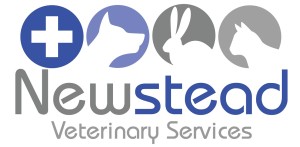This information is a brief guide on some aspects of caring for your new puppy. If you would like more detailed information about any of the following topics, please contact us.
VACCINATIONS
All puppies (and adult dogs) must be vaccinated against the five main and potentially fatal viral diseases: Parvovirus, Distemper, Leptospirosis, Parainfluenza and Hepatitis.
The vaccination programme depends on several factors, but is basically as follows:
- 1st vaccination: 6 weeks of age
- 2nd vaccination: 9 weeks of age
- 3rd vaccinaction: 12 weeks of age
A yearly booster is needed for the dog to remain fully covered for life.
If your puppy will be going into a kennel, it is highly advisable to give it a further vaccination against Kennel Cough. Most kennels will not let your dog board unless they have had a booster vaccination for Kennel Cough in the previous 6 months. In these cases we can give an intranasal vaccine, which boosts immunity within 72 hours.
IMPORTANT: Puppies are not fully protected until they have completed the whole course. Until they are fully vaccinated please keep away from the 3 P’s:
- Parks
- Pavements
- Poo
These are where unvaccinated dogs spread the diseases that we are vaccinating against. Puppies need to be socialised with other dogs, but don’t let your puppy play with unvaccinated dogs until 7 days after their final puppy vaccination, or let them play with dogs that have been near the 3 P’s.
WORMS
Regular worming is important.
Virtually all puppies are infected with worms at birth, and continue to become infected throughout their life. Therefore a continual worming programme is necessary.
- Fortnightly from 2 to 12 weeks old
- At 4 and 6 months of age
- Every three months from then onwards
There is a number of good quality worm treatments on the market. Here are the ones that we recommend: Drontal All-wormer, Endogard All-Wormer or Milbermax for Dogs
Hydatids and Sheep Measles are important diseases for our meat export industry. They are transmitted to dogs through raw meat and offal, and dogs then transmit the infection back to sheep and cattle. Hydatids can infect humans and are potentially fatal. The chance of this happening in New Zealand is small though, because of successful eradication programmes.
NEVER feed any offal (heart, liver, kidney etc) unless it has been well cooked or deep frozen for at least one week
NEVER feed sheep meat unless it has been deep frozen for at least one week or well cooked (even meat bought for human consumption)
NEVER let your dog scavenge dead sheep or cattle.
FLEAS
Fleas are a common problem in puppies, especially in the warmer months. If you need to treat your puppy for fleas, it is vital that the product you use is safe for puppies. It is also important that the source of fleas is also treated, especially other animals in the household (source of eggs), and the puppy’s bedding (source of baby fleas).
We stock a range of flea products including Advantage, Advocate, Comfortis, Frontline Plus, Revolution and Seresto
LEGAL OBLIGATIONS
Dogs must be registered by your local council, usually at 3 months of age.
Other legal obligations of dog owners include:
- providing food, drinking water and shelter
- providing daily exercise
- keeping your dog under adequate control, i.e. on a lead unless on your own property
- providing adequate care in the event of illness or injury
FEEDING
The best diet for your puppy is a “complete” puppy food, e.g. Eukanuba Puppy, Hill’s Puppy or Royal Canin Puppy and Junior. Bones should not be given, as they can chip or fracture teeth and can cause intestinal blockages.
Number of feeds
- 6 – 12 weeks old: 3 – 4 feeds/day
- 3 – 6 months old: 2 – 3 feeds/day
- 6 months onwards: 1 – 2 feeds/day
Do not over feed your puppy at any stage. Avoid a rapid growth rate, as this can result in bone and joint problems, especially in larger breeds.
DE-SEXING (NEUTERING/SPAYING)
It is important for all dogs not intended for breeding to be de-sexed, preferably at the age of 6 months.
Neutering and spaying have several benefits:
- helping to control the unwanted dog population
- de-sexed dogs are generally better companions and wander less
- some medical benefits including reduced risk of mammary (breast) cancer in bitches and of prostate problems in males
IT IS UNNECESSARY FOR BITCHES TO HAVE A LITTER BEFORE THEY ARE SPAYED.
EXERCISE
Regular daily exercise is important for good health, as well as being a legal requirement of owning a dog. Exercise your puppy on your property away from public places until the vaccination programme is complete. Do not over-exercise young growing dogs as this can stress bones and joints.
SOCIALISATION AND PUPPY SCHOOL
For good mental and social development, your puppy should have contact with other dogs especially between 6 and 16 weeks of age. To minimise the risk of your puppy contracting one of the above infectious diseases, this socialisation must be with fully vaccinated dogs and away from the 3P’s. Once they have begun their vaccination programme they will become eligible to enrol in puppy classes with other vaccinated puppies. Contact the clinic to ask us for more information about our Puppy Pre-School.
TRAINING
It is important that your puppy develops into a well behaved, obedient, and non-aggressive dog. Start “training” as soon as you receive him/her, by:
- rewarding good behaviour (including good toilet habits)
- discouraging bad or inappropriate behaviour (including growling, any biting of people and bad toilet habits)
Lead and obedience training can be started from any age, but don’t expect great progress until 3 – 4 months of age. Puppy school followed by obedience/training lessons are a good way to ensure that you and your puppy develop a good relationship. Contact us about our “Puppy School” where socialisation skills and basic training is offered.

No comments yet.